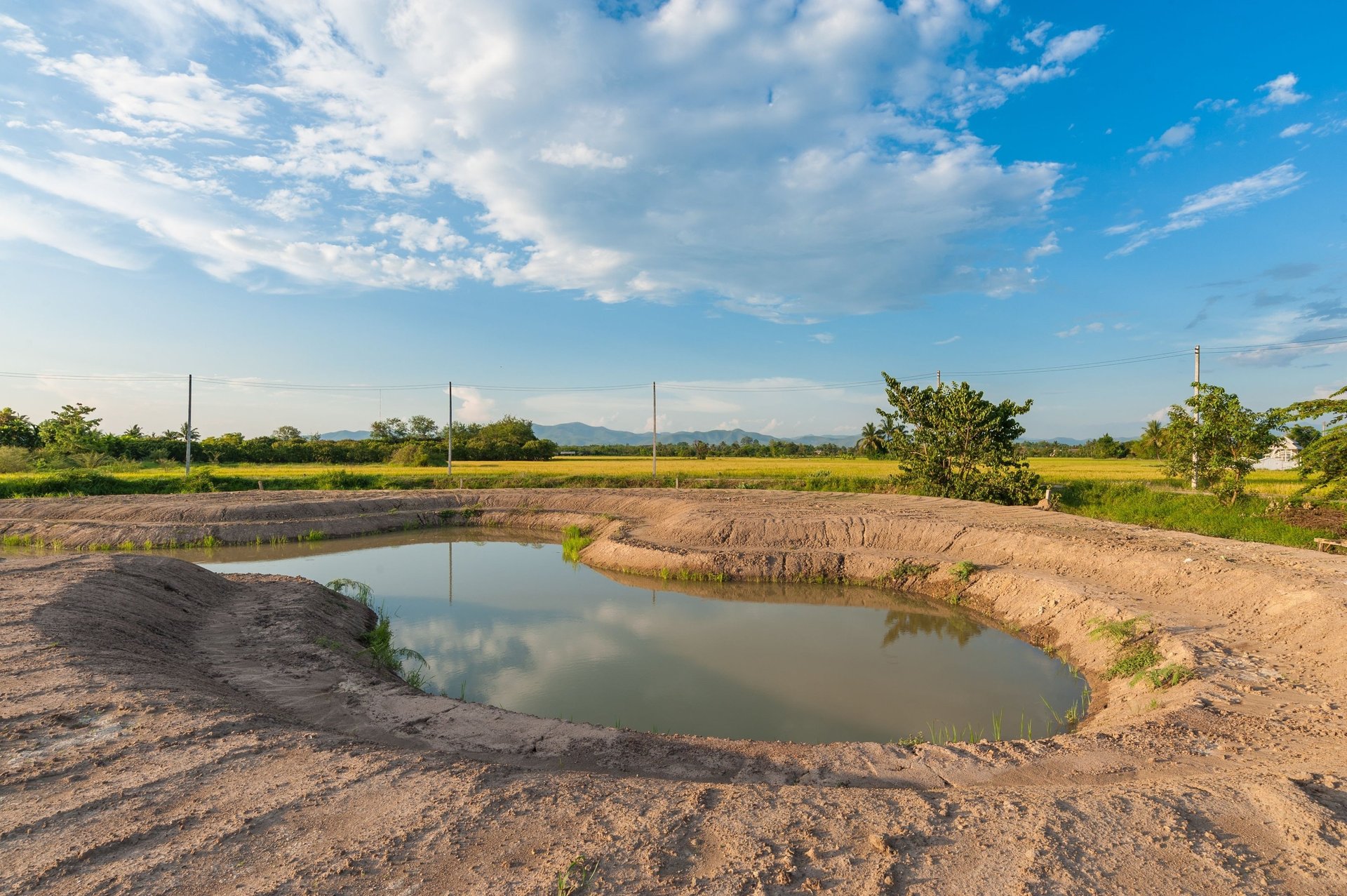
Flood Risk Assessment in Lancaster
Your Specialists in Surface Water Drainage
Whether you are a tenant or a landlord, it is essential to maintain your property's drainage system to prevent issues like backflows and water pooling. To ensure the stability of your site's foundation, you should have experts conduct a flood risk assessment. This assessment identifies potential hazards, evaluates the impact on the site, and ensures compliance with regulations through early mitigation. For a trustworthy evaluation, it’s best to rely on an experienced engineering team.
At Courous, we are proud to be a registered company known for our dependable flood risk assessments in Lancaster (LA1) and the surrounding areas. We offer a variety of services, from pre-planning site assessments to intricate drainage designs, always focusing on sustainable solutions for every project. With us, you can effortlessly manage all your civil engineering needs through one reliable point of contact. Ready to take the next step? Fill out our short form, and let’s get started on enhancing your property together!
Send Us a Message
Our Services
Drainage Design
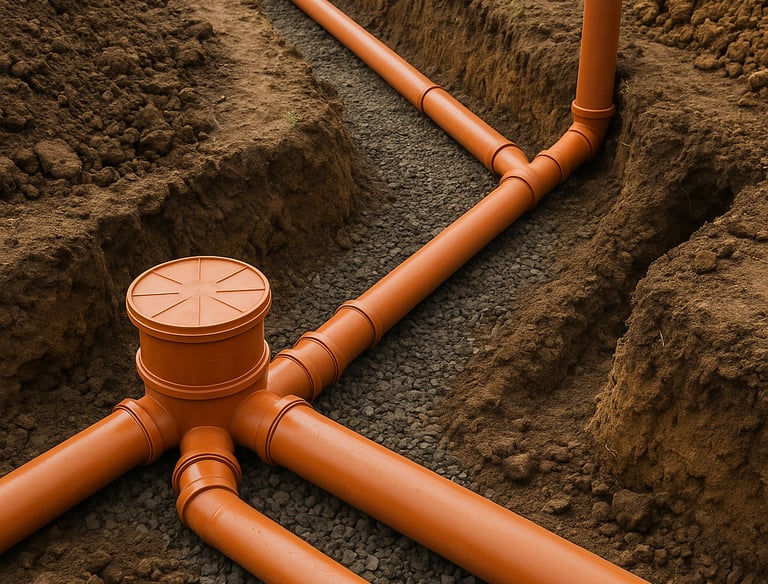

We deliver comprehensive foul and surface water drainage design solutions for developments and strategic road networks. Our work includes the detailed design of drainage pipe layouts, ACO drains, drainage channels, and land drainage pipe systems to ensure efficient water management and long-term sustainability.
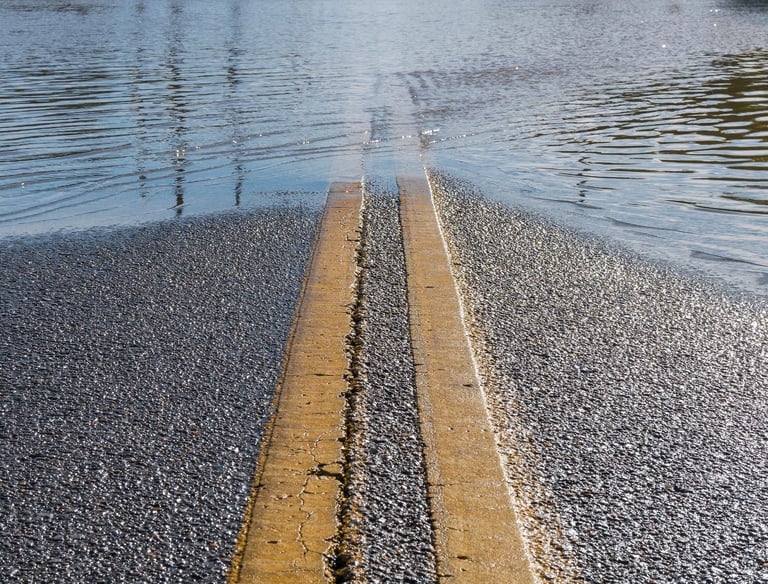

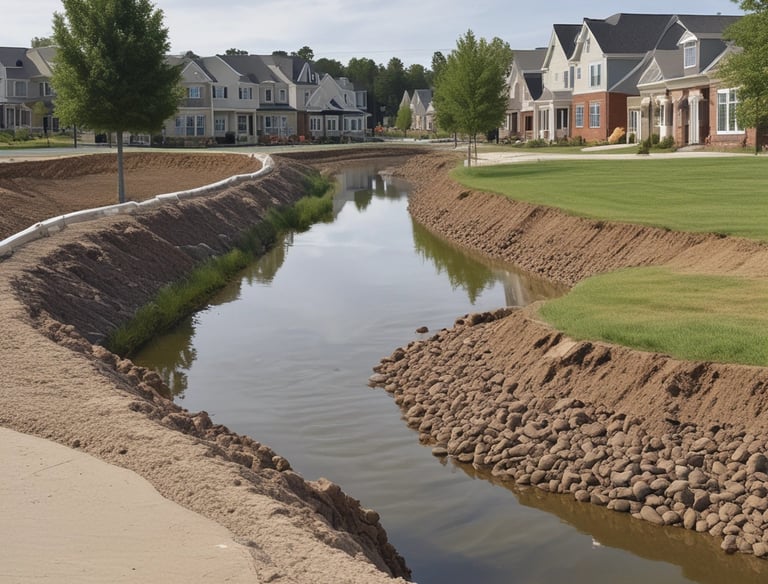

Flooding Assessment & Mitigation
We support clients in navigating planning regulations and managing water-related risks through robust assessments and design of mitigation measures, including soakaways, attenuation systems, and ponds.
We design innovative systems that protect the environment while meeting CIRIA, DMRB, and EA guidelines. Our designs incorporate sustainable surface water drainage and pollution control features tailored to each project.
Pollution Mitigation Design
When Is a Flood Risk Assessment Needed?
Flood risk assessments (FRAs) from Courous experts are invaluable in several key circumstances:
Before Starting New Construction or Extensions
If you’re planning to build or modify land, an FRA is essential for managing water runoff effectively.
When Designing or Upgrading Drainage Systems
An FRA ensures systems like soakaways and permeable pavements can handle expected surface water.
If You Encounter Persistent Surface Water Problems
Persistent drainage issues may indicate the need for an FRA to identify future challenges.
To Meet Planning or Compliance Standards
Many councils require an FRA for planning approvals in flood-prone areas.
After Landscaping or Paving Changes
New driveways or patios can impact water absorption, so an FRA helps direct runoff effectively.
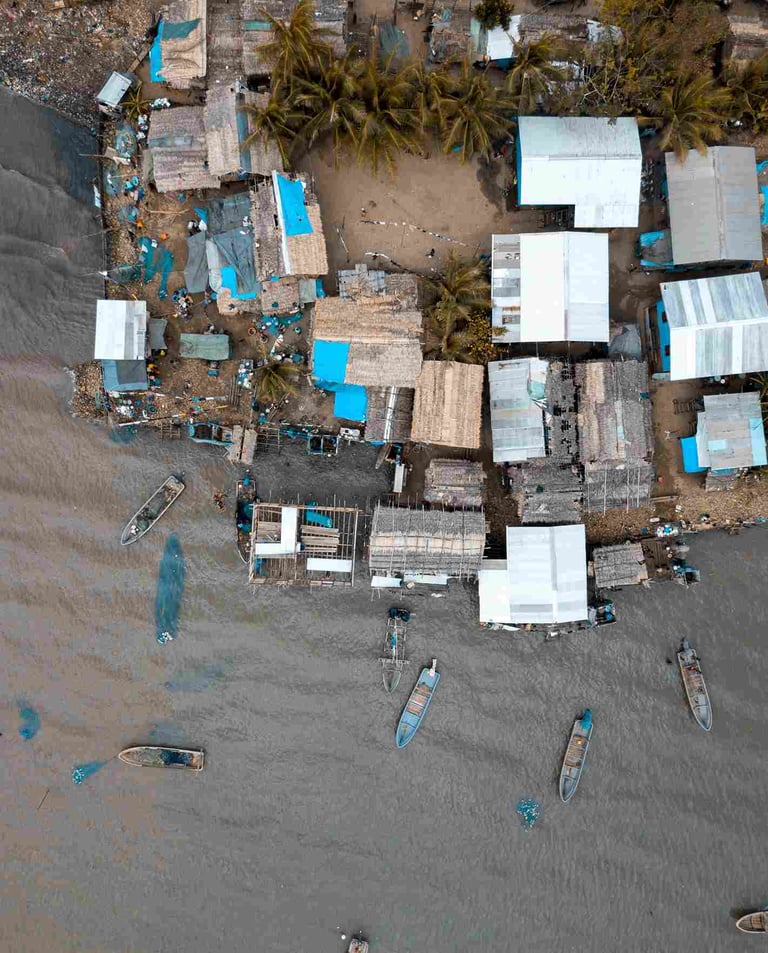

150+
10+
Years of Experience
Happy Clients
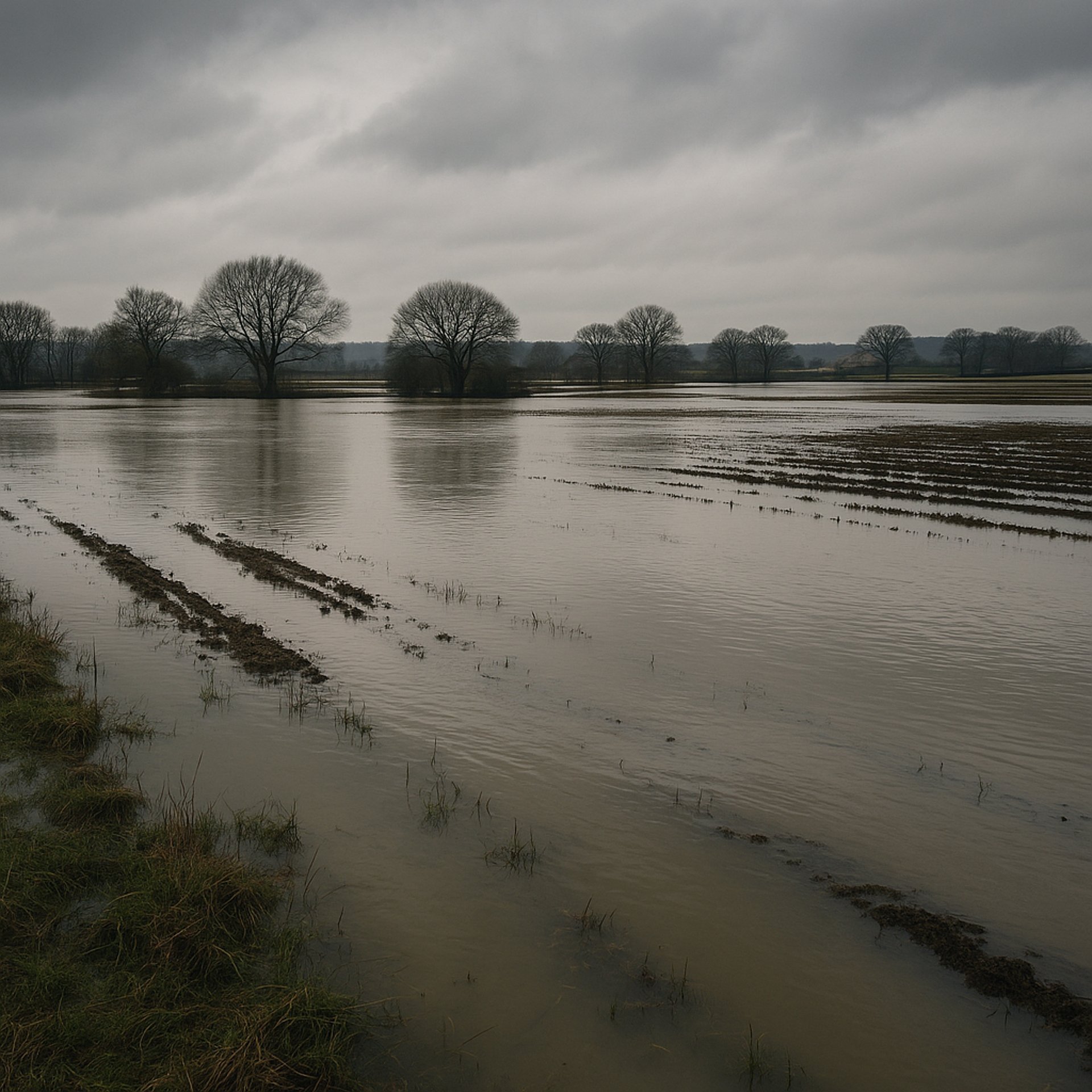
Require Flood Risk Assessment? Contact Us
Schedule your professional flood risk assessment to safeguard your assets from surface water problems. Contact our engineers by calling 01254 377171 or emailing info@courous.co.uk today.
Why Choose Us for FRA Services?
At Courous, we combine civil engineering expertise with advanced drainage tools to deliver reports that meet planning and environmental standards. Here’s why we’re Lancaster’s top choice:
Experienced civil engineers providing flood risk and drainage solutions.
Certified experts delivering reliable planning documentation.
Focused on high-risk drainage zone identification and mitigation.
Skilled in designing sustainable drainage systems (SuDS).
Committed to cost-effective assessments to reduce future costs.
Trusted for comprehensive flood risk consultancy and support.
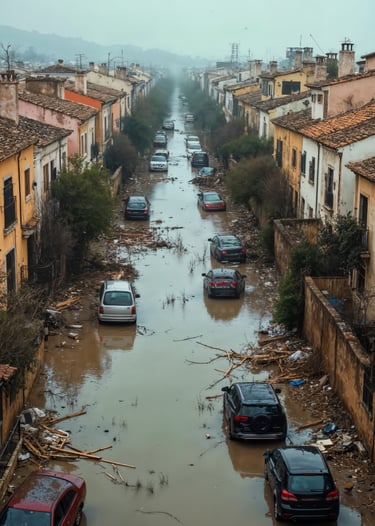

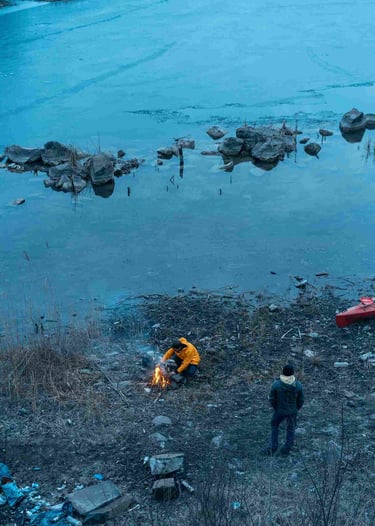

Gallery



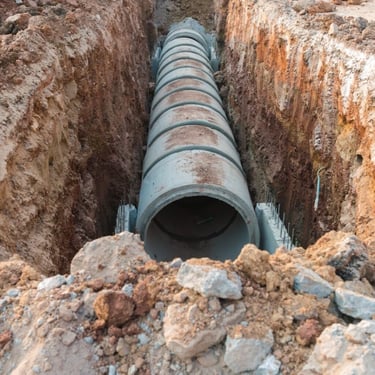
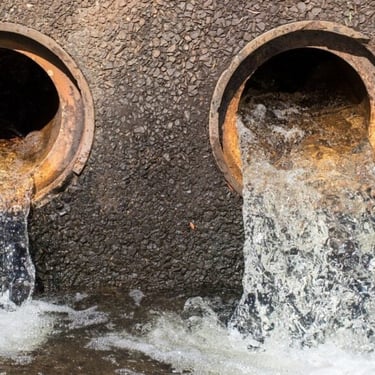
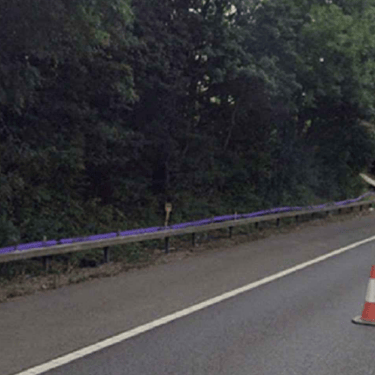
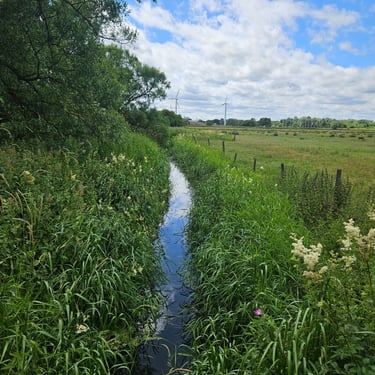
Our Happy Customer
Outstanding service from start to finish! The pollution mitigation strategies they delivered were innovative and effective. The flooding assessment was detailed, helping us plan with confidence and avoid costly issues. Their drainage design was spot-on, combining both functionality and long-term sustainability. Truly a professional team dedicated to delivering quality results.
Brian Moten
The team provided exceptional support with pollution mitigation design, ensuring compliance with regulations while keeping our project environmentally responsible. Their flooding assessment was thorough and gave us clear insights into potential risks. Most importantly, their drainage design was practical, efficient, and tailored to our site conditions. Highly recommend their expertise for anyone seeking reliable and sustainable solutions.
Clarice Turner
★★★★★
★★★★★
Frequently Asked Questions
What does a Flood Risk Assessment entail?
A professional flood risk assessment is crucial for effective flood management. It includes technical checks to identify drainage and surface water issues, such as:
Evaluating drainage layouts and site levels
Analysing rainfall data and ground permeability
Checking flow routes for surface and groundwater
Recommending mitigation measures or improved drainage designs
How much does flood risk assessment typically charge?
A flood risk assessment costs from a few hundred to several thousand pounds, depending on the report's complexity. The final price depends on:
Property's location, size
Site complexity
Specific requirements of the assessment
Contact us for a personalised quote tailored to your specific site and project details.
How long does a flood risk assessment usually take?
Most property-level flood risk assessment planning reports are completed within a few days to several weeks, depending on site size, survey depth, and available data. On request, urgent assessments can often be fast-tracked to facilitate swift flood risk mitigation measures.
How does a flood risk assessment evaluate my drainage system?
A flood risk assessment evaluates your drainage system's ability to manage surface water runoff and its exposure to blockages or overflows. It assesses how development might affect current drainage, considering size, impact on natural flow, and flood risk elsewhere.
Get In Touch
Courous, Suite 7a, The Globe Centre, Accrington, BB5 0RE
Find us on LinkedIn
